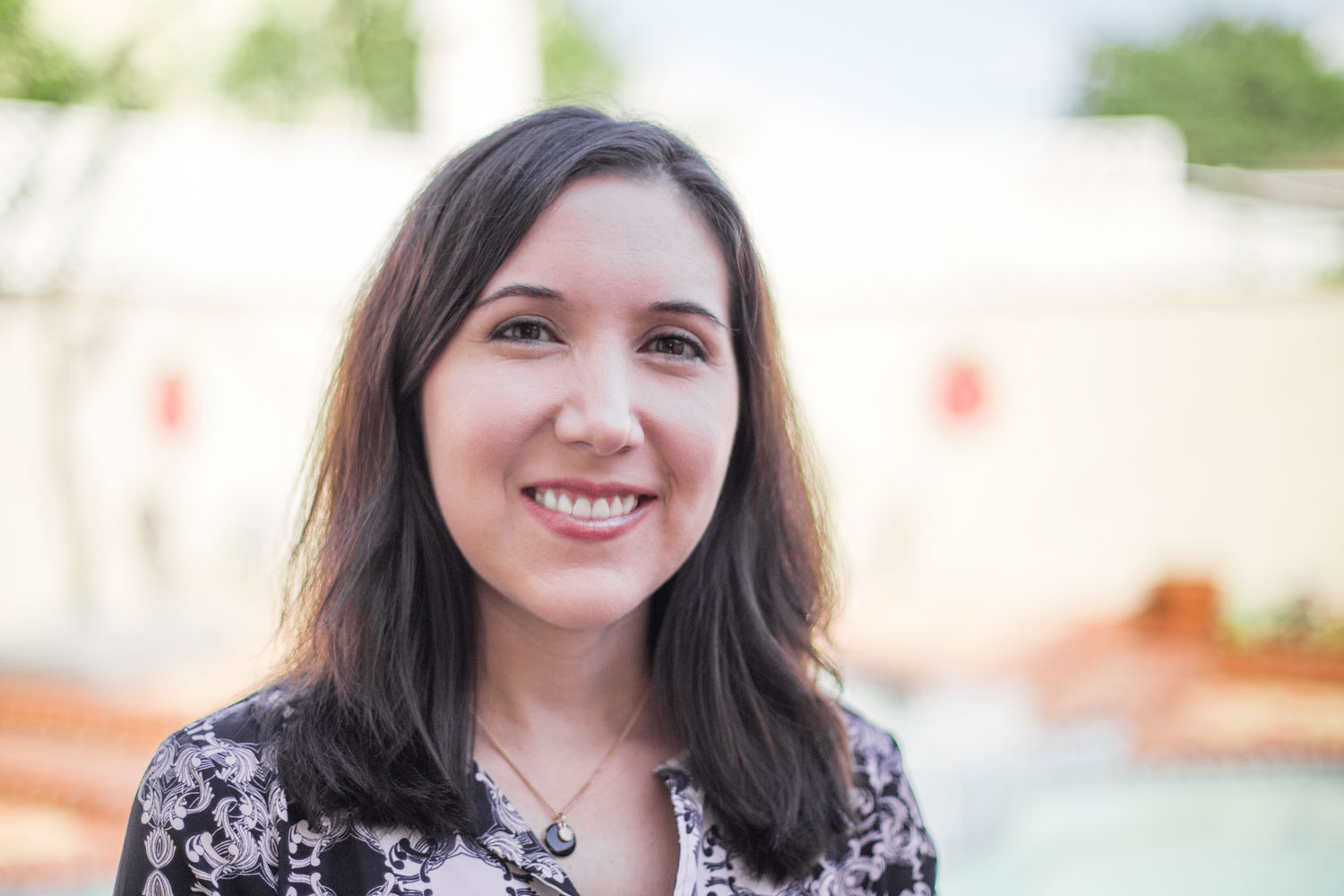Read Kathleen’s Story: English | Spanish
My parents were the first ones to know about my condition, and I didn’t say much to my family because I was kind of embarrassed. My name is Kathleen Rivas and I live in Lakewood, California.
Sometimes in Mexican or Latin culture it feels like epilepsy is something that you should hide, like it’s something to be embarrassed about, but I think that just comes from a lack of education on the condition, so I think doing something like this is going to help those who suffer from epilepsy and their families to know that there is hope for them.
When I got accepted at the University of Southern California I went to study my masters, but later my illness got worse, and so I went to the student health center and there they told me to go to USC hospital. There is where I found the team of doctors that I could work with and they examined for seven years, and eventually I got ahold of the RNS system.
My dad has been with me since day one and he goes to all of my doctor appointments, he was with me during the surgery, and so, he is my hero.
The doctor looks at all of my brain activity, because the RNS records 24 hours a day, so he takes a look at everything. Then we see when I get the worst ones, and he adjusts the settings so that I get them less often. So we are at a point where I don’t have so many episodes, no more than two a month. Before it was once a day.
Since I have the RNS system I already feel more at peace. I can live my life without worrying when my next epileptic episode will be. I can now enjoy my family, go to Disney Land with my niece, get my license again.
I would tell those who are thinking of getting the RNS system to trust the technology, medicine, their doctors, and themselves. That it will improve their life, and to have faith in the science and the scientists that make the RNS System.
Every person’s seizures are different and individual results will vary.
Mis padres eran los primeros que supieron de mi condición y no le decía mucho a mi familia porque como que me daba vergüenza. Me llamo Kathleen Rivas y vivo en Lakewood, California.
Algunas veces en la cultura mexicana o latina se siente como que la epilepsia es algo que se debe de esconder, como que es una vergüenza, pero yo creo que eso es nomás la falta de educación, de la condición, así que haciendo pues algo como esto yo creo que les va a ayudar a las familias y a los que sufren de epilepsia, para saber que hay esperanza para ellos.
Cuando me aceptaron a la University of Southern California yo fui a estudiar mi maestría, pero luego me estaba dando más de mi enfermedad, y entonces fui al centro de salud de los estudiantes y allí me dijeron que fuera al Hospital de USC, y ahí fue donde encontré todo el equipo de doctores que pude trabajar con ellos y pues diagnosticaron por siete años, y eventualmente pude agarrar el sistema RNS.
Mi papá ha estado conmigo desde el primer día y él va a todas mis citas con el doctor, él estuvo conmigo en la cirugía, y pues él es mi héroe.
El doctor mira toda la actividad de mi cerebro, porque el RNS lo graba veinticuatro horas al día, entonces él mira todo. Y entonces nosotros vemos cuándo me dan los más severos, y él ajusta los settings para que me den menos. Entonces ya estamos a un punto donde ya no tengo tantos episodios, ya nomás dos al mes. Y antes uno al día.
Ya que tengo el sistema RNS ya me siento más en paz. Puedo vivir mi vida sin preocupación que cuándo me va a dar el próximo episodio de epilepsia. Ya puedo estar a gusto con mi familia, ir a Disneylandia con mi sobrina, agarrar mi licencia otra vez.
Yo les diría a los que están considerando el sistema RNS que le tengan confianza a la tecnología, a la medicina, sus doctores, a ellos mismos. Que le va a mejorar la vida, y que tengan fe en la ciencia y los científicos que hacen este sistema RNS.
Cada persona experimenta las convulsiones de manera distinta, y los resultados personales pueden variar.
Published on: February 23, 2016



